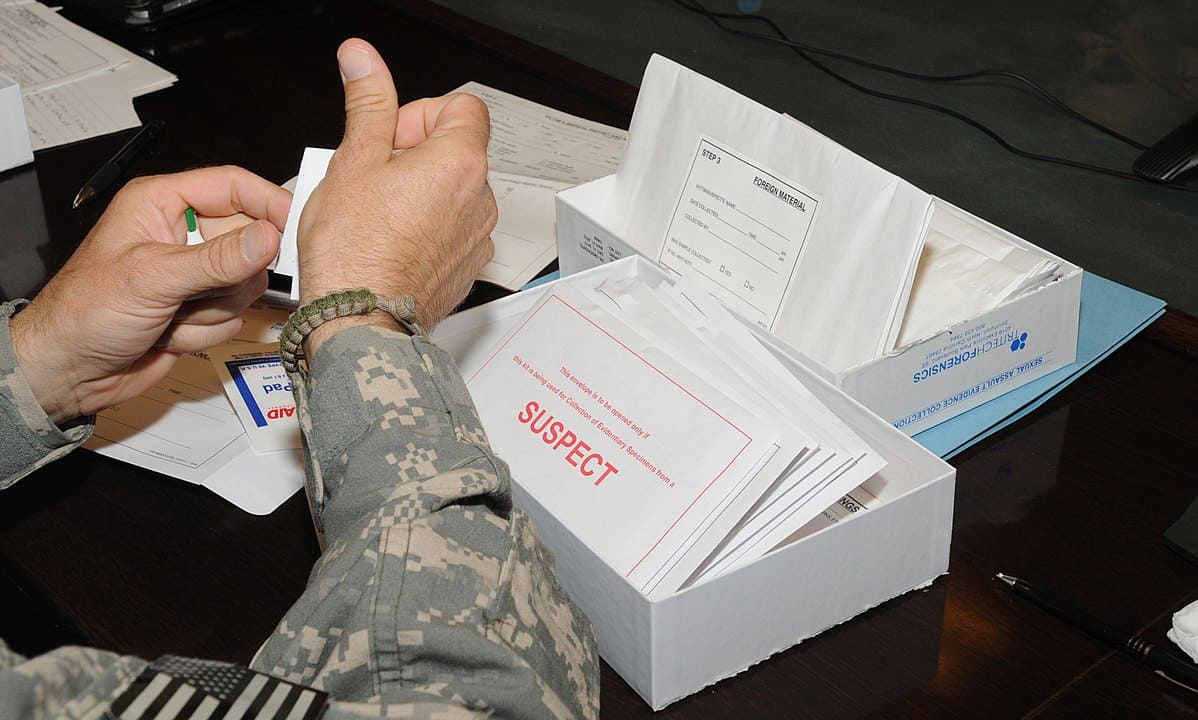Photo credit: Medical professionals learn how to use the Sexual Assault Evidence Collection kit, courtesy of Wikipedia.
A new law signed by Colorado Governor Jared Polis aims to tackle the state’s growing backlog of untested sexual assault kits, which currently average over 500 days in processing time. Senate Bill 304, passed with bipartisan support, establishes a grant-funded independent sexual assault coordinator within the Colorado Bureau of Investigation (CBI) to oversee testing capacity and report findings annually to the legislature, Colorado Politics reported yesterday.
The law also mandates that law enforcement agencies notify survivors every 90 days if test results remain pending, and requires crime labs to “endeavor” to complete analysis within 60 days of receiving forensic medical evidence.
Additionally, SB 304 establishes a Sexual Assault Forensic Medical Evidence Review Board within the Colorado Department of Law. This board will evaluate existing investigative protocols and training standards, offering victim-centered recommendations to lawmakers by November 1, 2026, in alignment with the federal Violence Against Women Act.
Governor Polis praised the legislation as a critical step toward justice: “Everyone who has experienced sexual assault deserves justice and this new law moves us closer to ensuring that.”
One of the bill’s co-sponsors, Rep. Jenny Willford, brought urgent attention to the issue after publicly revealing she was sexually assaulted by a Lyft driver in early 2024. She said her own rape kit still awaits testing over a year later.
SB 304 is part of a legislative package aimed at restoring trust in the CBI following misconduct allegations against longtime lab employee Yvonne “Missy” Woods. Woods has been indicted on 102 felony charges related to the deletion and manipulation of DNA evidence in more than 1,000 cases, resulting in an estimated $11 million in damages.
To check the status of rape kit backlogs in your state, visit EndTheBacklog.org. This resource provides up-to-date information on each state’s progress in addressing untested rape kits and implementing reforms.




